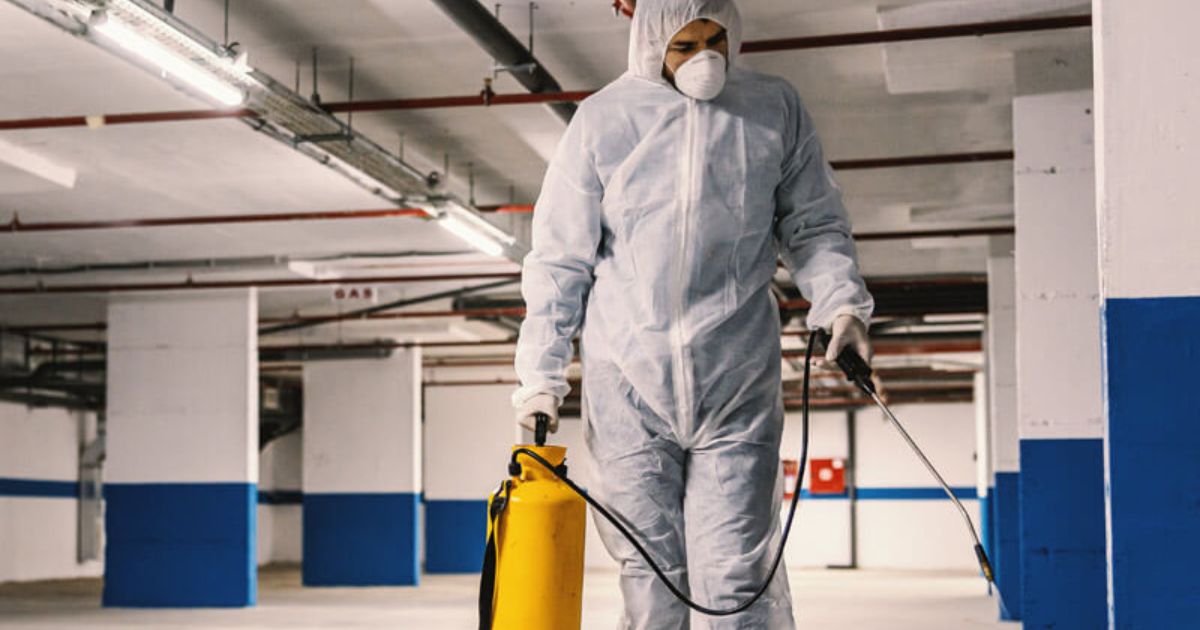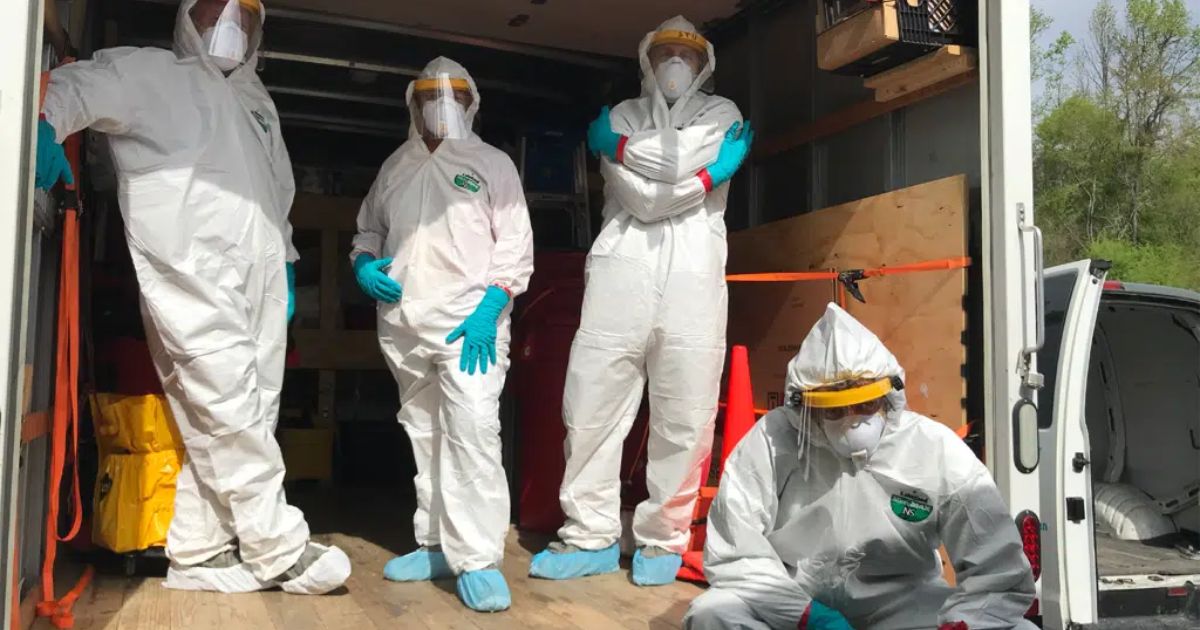In the dark underbelly of crime, there exists an unsung hero, silently restoring order amidst chaos. The cleaning without insurance crime scene cleaner, like a master artist of redemption, brings solace to devastated spaces. But what rewards await those who choose this noble path? Delving into the depths of this profession, this article examines the factors that determine a crime scene cleaner’s earning potential. From job responsibilities to geographical location, join us as we unravel the intricate tapestry of financial remuneration in this often overlooked vocation.
Key Takeaways
- Crime scene cleaners are responsible for cleaning and sanitizing crime scenes, removing biohazardous materials, and restoring the scene to its pre-incident state.
- Training and certifications, such as Bloodborne Pathogen Certification and Crime Scene Cleanup Certification, are necessary for safe and effective cleaning.
- Salary ranges for crime scene cleaners vary depending on factors such as location, experience, specialization, and type of employer.
- Opportunities for career growth and higher earnings exist through advanced training, certifications, specialization in niche areas, and potential for starting one’s own crime scene cleaning business.
Job Responsibilities
Crime scene cleaners are responsible for efficiently and meticulously cleaning and sanitizing crime scenes using specialized equipment and techniques. Their primary job is to restore the scene to its pre-incident state, ensuring the removal of all biohazardous materials, blood, bodily fluids, and other potentially infectious substances. This process requires a keen eye for detail and the ability to work in a methodical and systematic manner.
Crime scene cleaners must adhere to strict safety protocols to protect themselves and others from potential health hazards. They are also responsible for properly disposing of waste and ensuring that all cleaning products and chemicals are used in accordance with industry regulations. Additionally, crime scene cleaners may be required to document the condition of the scene before and after cleaning and provide any necessary reports or documentation to law enforcement or insurance companies.
Required Training and Certifications
To become a crime scene cleaner, individuals must complete the necessary training and obtain relevant certifications in order to safely and effectively carry out their responsibilities. The training for crime scene cleaners typically includes a combination of classroom instruction and hands-on experience. Courses cover topics such as bloodborne pathogens, biohazardous waste management, personal protective equipment (PPE) usage, and proper cleaning techniques.
Additionally, crime scene cleaners may need to obtain certifications such as the Bloodborne Pathogen Certification and the Crime Scene Cleanup Certification. These certifications ensure that cleaners have the knowledge and skills to handle hazardous materials and adhere to safety protocols. By completing the required training and obtaining the necessary certifications, crime scene cleaners can demonstrate their competence and commitment to providing a professional and thorough service.
Moving on to the next section, let’s dive into the importance of experience level in the field of crime scene cleaning.
Experience Level
With regards to experience level, crime scene cleaners can greatly enhance their expertise and efficiency through practical hands-on work. Here are five ways in which experience can play a crucial role in the career of a crime scene cleaner:
- Exposure to various crime scenes allows cleaners to develop a keen eye for detail and an ability to identify potential hazards.
- Experience helps cleaners refine their techniques and become more efficient in their work, enabling them to complete tasks more quickly and effectively.
- Dealing with challenging situations on a regular basis helps cleaners develop the necessary emotional resilience and coping mechanisms.
- Experienced crime scene cleaners are often called upon to provide guidance and mentorship to new team members, contributing to a sense of community and camaraderie within the profession.
- Years of experience can lead to opportunities for advancement, such as supervisory roles or specialization in specific areas of crime scene cleanup.
Through hands-on experience, crime scene cleaners can continuously improve their skills, contribute to the profession, and find a sense of belonging within their community of fellow cleaners.
Geographical Location
Experienced crime scene cleaners can expect variations in their salary based on the geographical location in which they work. The location plays a crucial role in determining the demand for crime scene cleaning services and the cost of living, both of which can impact the earning potential of professionals in this field. In urban areas with high crime rates or large populations, the demand for crime scene cleaners may be higher, leading to higher salaries.
Additionally, regions with a higher cost of living may offer higher wages to compensate for the increased expenses. On the other hand, in rural or low-crime areas, the demand for crime scene cleaners may be lower, resulting in lower salaries. Understanding the geographical factors that influence salary can help professionals make informed decisions about their career path. Moving forward, another important factor to consider is the type of employer.
Type of Employer
Crime scene cleaners’ salary can also be influenced by the type of employer they work for. The following factors can impact the earning potential of crime scene cleaners based on their employer:
- Private companies: Crime scene cleaners who work for private companies may have more competitive salaries due to their ability to negotiate rates and offer specialized services.
- Government agencies: Crime scene cleaners employed by government agencies, such as law enforcement or healthcare departments, may receive a stable salary and benefits package.
- Non-profit organizations: Crime scene cleaners who work for non-profit organizations may earn lower salaries, but they often find fulfillment in serving the community and making a positive impact.
- Self-employed: Crime scene cleaners who run their own businesses have the potential to earn higher incomes, but they also bear the responsibility of managing overhead costs and finding clients.
- Franchise owners: Crime scene cleaners who operate under a franchise may have the advantage of brand recognition and support, but their earnings can be affected by franchise fees and royalties.
Understanding the type of employer can provide insight into the range of salaries that crime scene cleaners can expect to earn.
Salary Range
The salary range for crime scene cleaners can vary significantly depending on factors such as location, experience, and the type of employer. Generally, crime scene cleaners earn an average annual salary ranging from $25,000 to $75,000. Location plays a crucial role in determining the salary range, as cleaners in metropolitan areas tend to earn higher wages compared to those in rural areas. Experience is another important factor that affects the salary of a crime scene cleaner.
Entry-level cleaners with minimal experience may start at the lower end of the salary range, while those with several years of experience and specialized training can earn towards the higher end. Additionally, the type of employer can impact salary, with private companies often offering higher wages compared to government or non-profit organizations.
Additional Benefits and Perks
Furthermore, crime scene cleaners may be eligible for additional benefits and perks based on their employer and level of experience. These additional benefits and perks can vary depending on the company and the specific role of the cleaner. Some potential benefits and perks that crime scene cleaners may receive include:
- Health insurance coverage: Many employers offer health insurance benefits to their employees, including crime scene cleaners. This can help cover medical expenses and provide peace of mind for the cleaner and their family.
- Retirement plans: Some employers provide retirement plans, such as 401(k) or pension plans, for their employees. This can help crime scene cleaners save for their future and ensure financial stability in their later years.
- Paid time off: Crime scene cleaners may be entitled to paid vacation days, sick leave, and holidays, allowing them to take time off and recharge.
- Training and development opportunities: Employers may offer training programs and opportunities for professional development, allowing crime scene cleaners to enhance their skills and advance in their careers.
- Employee discounts: Some companies provide discounts on products or services to their employees, which can help crime scene cleaners save money on everyday expenses.
These additional benefits and perks can enhance the overall compensation package for crime scene cleaners and contribute to their job satisfaction and well-being.
Future Outlook and Advancement Opportunities
With a growing demand for crime scene cleaning services, professionals in this field can expect promising future outlook and ample advancement opportunities. As crime rates continue to rise, the need for crime scene cleaners is expected to increase significantly in the coming years. This demand is fueled by the increasing awareness of the importance of thorough and safe crime scene cleanup.
Additionally, advancements in technology and techniques have led to more efficient and effective cleaning processes, creating opportunities for specialization and career growth within the field. Crime scene cleaners can pursue advanced training and certifications to enhance their skills and qualifications, allowing them to take on more complex cases and command higher salaries. Furthermore, as the industry continues to evolve, there may be opportunities for professionals to establish their own crime scene cleaning businesses, providing even greater potential for career advancement and financial success.
FAQ,s
What Are the Potential Health Risks and Safety Precautions Associated With Crime Scene Cleaning?
Crime scene cleaning involves potential health risks and requires adherence to strict safety precautions. Exposure to blood, bodily fluids, and hazardous materials can lead to infections, respiratory problems, and chemical hazards. Proper training, personal protective equipment, and thorough decontamination protocols are essential for minimizing these risks.
How Long Does It Typically Take to Clean a Crime Scene?
The time required to clean a crime scene depends on various factors such as the size of the area, the severity of the crime, and the presence of biohazardous materials. A single-room cleanup can take around 4-8 hours, while larger scenes may take several days.
Are Crime Scene Cleaners Required to Provide Their Own Cleaning Supplies and Equipment?
Crime scene cleaners are typically required to provide their own cleaning supplies and equipment. This ensures that they have the necessary tools to properly clean and sanitize the scene, maintaining the highest standards of safety and hygiene.
What Are the Emotional Challenges Faced by Crime Scene Cleaners?
Crime scene cleaners face significant emotional challenges, as they are exposed to traumatic and disturbing scenes on a regular basis. The nature of their work requires them to cope with the psychological impact of witnessing and cleaning up after violent incidents.
Are Crime Scene Cleaners Responsible for Disposing of Hazardous Waste?
Crime scene cleaners are responsible for the safe and proper disposal of hazardous waste generated during their work. This includes blood, bodily fluids, and other biohazardous materials, which must be handled in accordance with strict regulations to ensure public health and safety.
Conclusion
In conclusion, crime scene cleaners play a vital role in restoring order and minimizing the emotional impact of traumatic events. The salary range for this profession varies depending on factors such as experience level, geographical location, and type of employer. With the demand for crime scene cleaning services expected to increase, there may be future opportunities for advancement and career growth in this field. Overall, crime scene cleaning offers a challenging and rewarding career path for those interested in making a difference in their community.










